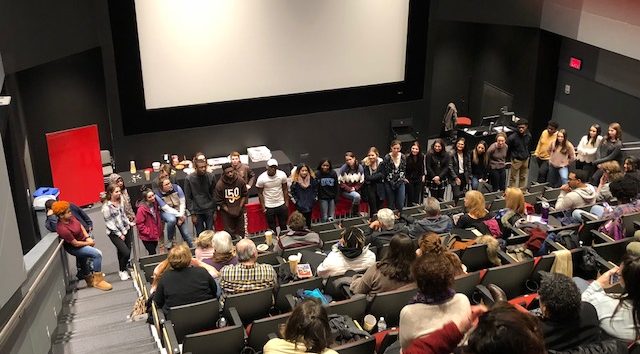I have been into watching and analyzing film since my sophomore year of high school. However, only recently has attention turned from watching fictional pieces to watching more documentaries. Of course, this class has played a major role in this.
This and my growing interest in photograph led me to watching a film called Harry Benson: Shoot First. The movie is a documentary about the life of a famous celebrity photographer named Harry Benson. He is the man responsible for shooting hundreds of iconic photos of influential characters in last 50 years or so. He is famously known for his photos of the Beetles and has also taken photos of figures such as Martin Luther King, Michael Jackson, and Ronald Reagan.
The film itself is very good. The director pairs a fair number of backstories about Harry’s most iconic pieces with biographical information on the artist. It was a very interesting film and I would recommend it to anyone who interested in documentation or photography.
The reason I am mentioning this film up is because it touches on several moral issues that we spoke about in class. For example, Harry tells us about his experiences marching in against segregation with Martin Luther King and other civil rights leaders. He mentions witnessing the abuse in form of tear gas and fire hoses on these protesting peoples. He often had inner battles in trying to decide between helping others and taking photos of the horrific events that he witnessed. He often chose the latter. He firmly believed that he was there for a purpose and that was to document what was happening so that others could see. Throughout his life he was faced with this decision many times and he always chose the camera.
This brought up more questions for me than answers. Specifically, I am now questioning the need for documenting events and how much value that has over helping others in a moment. I find myself mostly agreeing with Harry in the sense of understanding place and duty. What do you guys think?
